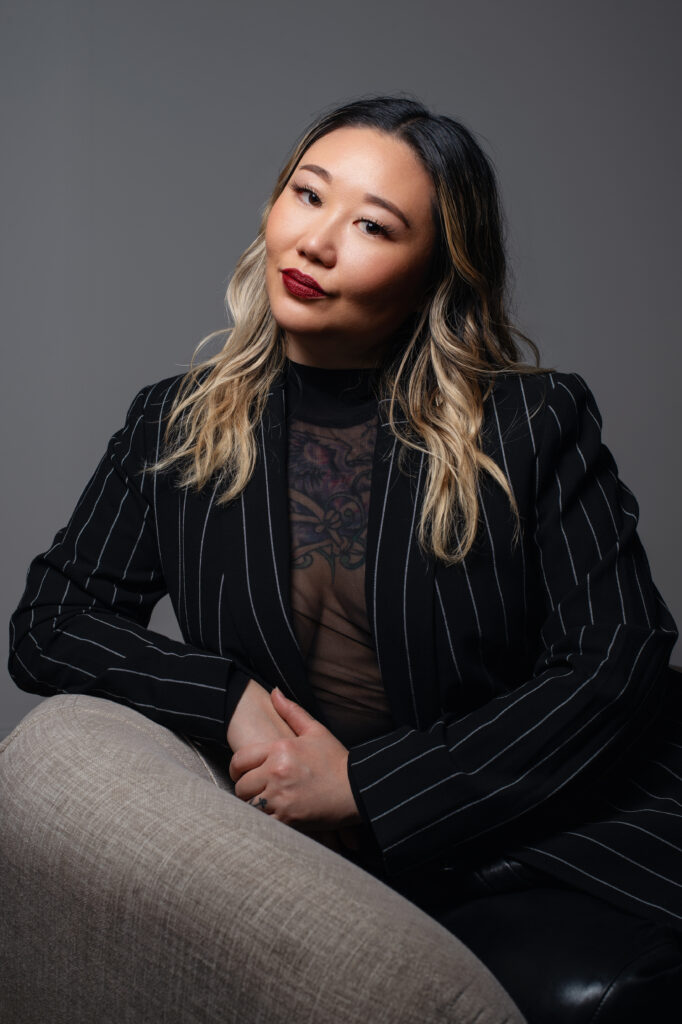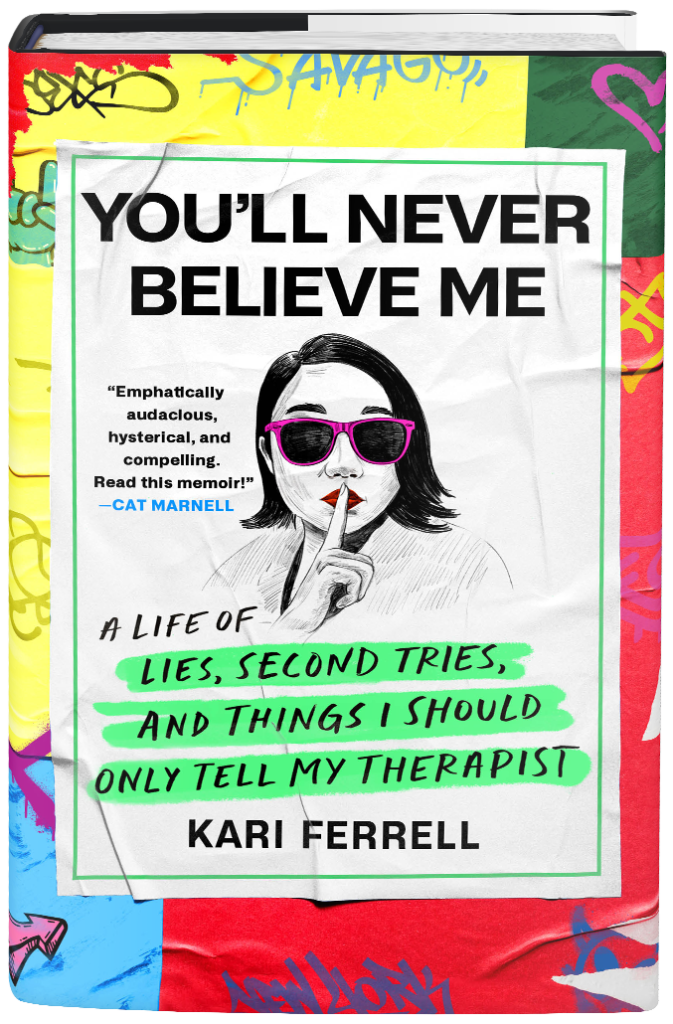“It was the first viral scam story. It sunk its claws into people.” – Kari Ferrell

Dubbed the “Hipster Grifter” in a viral 2009 New York Observer article, KARI FERRELL, then just 22 years old, became instantly internet famous. Fifteen years and a stint in a Utah prison later, Ferrell has re-emerged with You’ll Never Believe Me, an often hilarious, brutally honest memoir of a chaotic, misspent youth. PETER DAVIS speaks to the charming, one-time small-time scam artist about her Mormon upbringing, being adopted as a baby from South Korea, and how she found humor in a prison riot.
I remember thinking your grift was small potatoes compared to later famous scammers like Anna Delvey and Elizabeth Holmes.
I’ve been wondering how much money the state of Utah spent not just on the extradition, but this whole “woman hunt.” I’m sure it totaled far more than the amount of money I had taken. Not negating what I did, but the warrants were for $60,000. I had actually taken less than $20,000. Because it was such a big story, they would look foolish if they had not caught me.
“People were either very pro or against me, there wasn’t a lot of middle ground.” – Kari Ferrell
You became a media obsession.
The amount of effort everyone put into the story is still mind boggling to me. I decided to write a book many years later because after hundreds of hours of therapy, I was like, “Oh, I do have an interesting story.” The most fascinating parts are what the media didn’t report: that I was adopted; that I was raised Mormon. It was all about the present day because that was the sexy, salacious news, but, to me, the cult upbringing is way more interesting. When writing this, I knew the crime aspect was going to be the hook. I hope that doesn’t bamboozle anyone wanting to read a guide of how to go about scamming. That’s not the point of this story. My reason for doing this is to bring light to this corrupt system and encourage second and third chances for everyone regardless of their demographics.
You flirted your way into the bank accounts of a few hapless trust fund guys in Williamsburg who were willing to cash rubber checks for you.
The majority of my victims in Brooklyn were white, middle-, and upper-middle-class men. There was that sort of antihero, feminist Robin Hood character that was applauded by many. And I don’t necessarily agree with that. People were either very pro or against me, there wasn’t a lot of middle ground.

Your story became national news.
It was the first viral scam story. It sunk its claws into people. When that article came out, people in the discourse were like, “What is a grifter?” It wasn’t part of our vernacular at the time. And now that term is attached to anyone and everyone and everything. It was the perfect storm and the perfect time and place for a story like this to take off and massively explode.
Your book is both funny and at times harrowing. You even made me laugh when you were describing a prison riot.
I’ve always had a ridiculous sense of humor. While in jail, people gravitated toward me because I’m very much a believer in gallows humor. If we’re not laughing about it, how are we processing it? How are we examining it? My sense of humor, the ridiculousness of it, the crassness of it, is not necessarily found within Mormon jails. I’ve always used humor as a coping mechanism. I’ve always been a storyteller. Sometimes the stories are factual and good, and then in the past, sometimes the story I was telling was absolutely the opposite of that.
It seems like you found redemption in telling your story, warts and all—from the scam to rebelling against your strict Mormon upbringing to being arrested—you didn’t hold back.
My addiction was never to substances or to the money itself. It was all for attention and ultimately belonging. Anyone can make bad decisions, and anyone can get caught and punished for those bad decisions. I realized I have this perspective that might be able to shake things up a little bit.
I know you are working on a show with Warner Brothers, but what about another book?
Someone asked me that the other day and I physically recoiled. Let’s see how this one goes. It was not a pleasant experience. I’m glad that I did it, and I found catharsis in it, but it wasn’t fun going down memory lane. It was awful rereading the worst mistakes over and over and scrutinizing it. How could I do this to people? I don’t know if another book is in the future; if there were, I can’t imagine that it would be a second memoir.
At the end of the book, you visit South Korea for the first time.
I wasn’t trying to find my biological parents. It was more connecting to the motherland and the culture. It was so amazing to go into these palaces and imagine my ancestors walking the same path. Korea was the first time I was not a minority. It was an incredible, eye-opening experience in that regard.
You’re now a happily married, published author living in New York, far away from Mormonism and Utah. As they say: you’ve come a long way, baby.
I cannot imagine being anywhere else but New York. It is a place that makes or breaks you. I need that fractious energy. That’s what inspires me. I don’t know if this makes me sound like an egoist, but to me, I feel like I represent New York, and it represents me. I am the chaos. I am the drive, the structure, the insanity of this amazing city.


